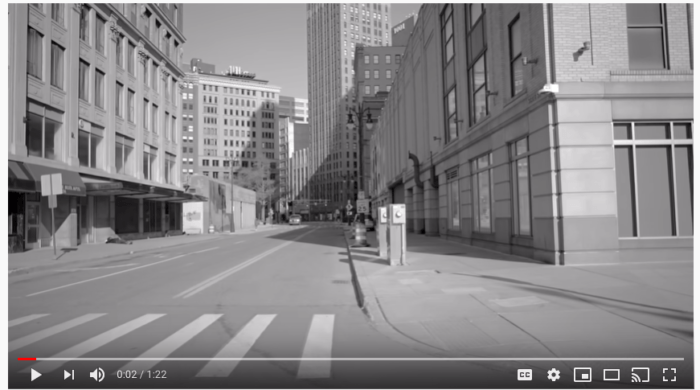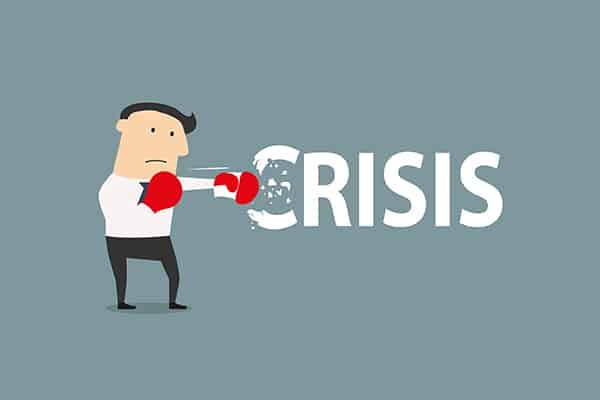Many of us have lived through a crisis or two. The 2008 recession, 9/11 (coupled with the 2001 recession), The Iranian hostage situation, The Vietnam War, the breakup of the Beatles, etc. However, some are experiencing this for the first time – specifically those in the Generation Z category (those born from approximately 1997 to 2012). The Coronavirus pandemic is some people’s first taste of a worldwide crisis. We have had significant health scares before, but all will agree, this one is very challenging in many ways.
Let’s get personal
On a personal level, this pandemic hits us from all sides. Financially, this touches you and/or your family. We have seen record unemployment, wage cuts, businesses completely shut down, services cut to a minimum. On top of that, I’m almost out of toilet paper. Seriously, it hits home. Speaking of home, with the various lockdowns, we have all been spending a lot of time at home. The mental, emotional and physical toll on our beings and psyche is heavy.
On a business level, we are embracing for an oncoming recession. With events and circumstances changing daily, we are reacting instead of acting. What’s our next move? From a storyline perspective, it’s difficult to talk about being a “hero” instead of a “victim” when we are all living in a storyline we may not feel we have any control over. Can we do anything to act in this situation? How do we look to practice agency amidst an epidemic? As someone who has experienced many a crisis, below are my 3 Pro Tips for Marketing Professionals looking to take proactive steps to survive (and thrive) through our current situation:
Tip 1: Stay Positive
Personally and professionally, we need to stay positive. A lot of bad things are happening right now, but a lot of good things are brewing. The world will be hitting the reset button. Although many are suffering, many are receiving a great gift. This can best be described by the untitled silver-lining poem that has spread across the globe by Kitty O’Meara:
And the people stayed home. And read books, and listened, and rested, and exercised, and made art, and played games, and learned new ways of being, and were still. And listened more deeply. Some mediated, some prayed, some danced.
Some met their shadows.
And the people began to think differently. And the people healed. And, in the absence of people living in ignorant, dangerous, mindless, and heartless ways, the earth began to heal.
And when the danger passed, and the people joined together again, they grieved their losses, and made new choices, and dreamed new images, and created new ways to live and heal the earth fully, as they had been healed.
Tip 2: Prepare for Rebound
One thing you can almost always count on: every crisis has a positive rebound. After every major war, the economy has moved to a state of flourish within 2 months to 2 years. After 9/11, the 2001 recession ended two months later and professionals, especially in marketing, moved to a high-sell and high-market economy for most of our 21st century. The 2008 recession saw a downward spike for almost 3 years, but though it took a long time to recover, it ultimately did.
Right now, many are only consuming fear. People of all stripes, buyers and sellers, are in a fog, and many for good reason. However, now is the time for marketers to plan and prepare and decide what and when to act upon. The economy needs marketers and marketing to be ready to rebound for the post-wave crisis. Marketing drives sales, and sales drives commerce. Those who are willing to take bold risks now and in the emerging stages of COVID WILL kick start the economy and valuable services with innovative approaches will win. The same philosophy applies to non-profits. Maintain and strengthen relationships (and find ways to go above and beyond) with your customers and donors.
Tip 3: Innovate the Market
Exhibit A: William Keith Kellogg had a nice little cereal company in Battle Creek, Michigan pumping out corn flakes in the 1920’s. When the Great Depression hit in 1929, everybody pulled back the reins on their marketing dollars. Mr. Kellogg doubled his marketing budget during the Depression. His thinking was that if people only had a nickel to spend on cereal, he wanted it to be Kellogg’s cereal. Guess what? It worked. Kellogg’s became the biggest cereal company in the world and remains so to this day.
Exhibit B: Weeks after 9-11, the ad industry flooded the airwaves with uplifting messages. General Motors offered up “Keep America Rolling,” half pro-America, half pitch for zero percent financing. Ron Zarrella, then president of GM’s North America operations, said of the controversial campaign, “We know this is a difficult time to talk about an incentive program, but GM has a responsibility to help stimulate the economy by encouraging Americans to purchase vehicles, to support our dealers and suppliers and to keep our plants operating and our employees working.”
Critics thought the campaign was nationalistic and disrespectful. However, GM stuck to their gut and acted forcefully with a marketing campaign and financial incentives at a time when many marketers were radio silent. The campaign worked. U.S. auto sales broke a record in October 2001 and went on to have their then second-best year ever for U.S. auto sales. GM wasn’t the only one pushing forward after 9-11. In October 2001, Apple launched its first mobile product, the ipod.
Are you hoping for the best while preparing for the worst? More importantly, are you preparing to bring your best with what will come next? From a marketer whose seen many seasons of economic change and celebrated many marketers proactively rise through crisis, I encourage you to prepare for your best by staying positive, building your rebound plan and innovating the market.
One way to innovate the market is to compel your customers (current or soon-to-be) with your most powerful pitch. As a marketer, you know this pitch is the heart of your organization – it could be your mission statement, your “why”, your founder’s mentality, your customer satisfaction ratings, your impeccable and superior product, or simply your truly human approach to service. Whatever it is, show it anyway you can, don’t just tell it.
Not every marketer should use video in their pitch and campaigns, but the vast majority should if they want to maximize return and data backs up why. Video is the quickest way to a customer’s heart (outside of one-on-one, in person custom interactions with your talented team). If you find the right caliber and campaign budget to maximize the return you are looking for, video may be a part of or the X factor to your innovative market plan. Consider all the ways a sales anthem, customer testimonial, founder’s message, heartfelt “why” video or a good ol fashioned adspot can compel your product, service and organization for what’s coming next.
At Voyage, our average video strategy (from consultation, campaign planning to production and launch/delivery) timeline is 8-10 weeks. What stories do you want to tell your donors or customers two-and-half months from now? Will you be ready? Our strategists (including yours truly) are here to help, spec work and make recommendations; and starting these conversations now, virtually, can get you ideating for marketing plans.
At Voyage Pictures, we take pride as storytellers in video format. Every story has a beginning, a middle and an end. Nobody liked the beginning of this Coronavirus story and it gets difficult in the middle. However, we can write our own ending. How would you like your story to move through this crisis? My advice to you as you pick up your metaphorical or literal pen: stay positive, prepare for rebound and innovate your market.



